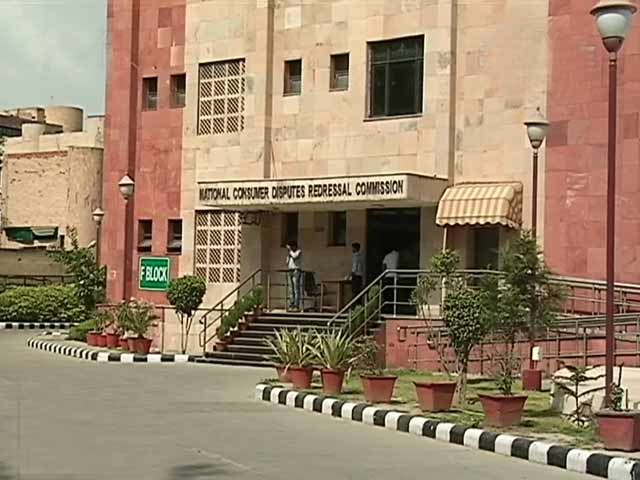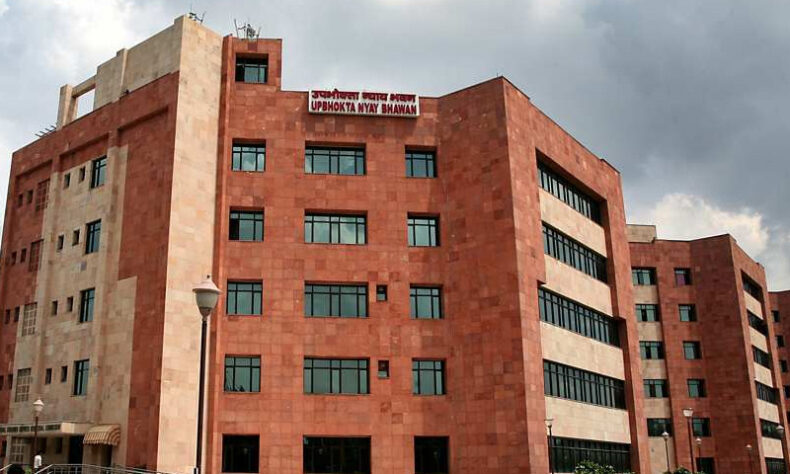Table of Contents
The National Consumer Disputes Redressal Commission (NCDRC) recently fined a hospital Rs 1.5 crore after it came to light that a semen mix-up had occurred on account of the hospital’s negligence. It was found that this mix-up had led to a child being born through artificial insemination from the gametes of another man. The action was taken after the aggrieved couple filed a case in the National Consumer Disputes Redressal Commission.

Background of the case
The couple that appealed to the NCDCR had approached the Bhatia Global Hospital and Endosurgery Institute, New Delhi in 2008 for having a child through the use of Artificial Reproductive Technology. An Intra-Cytoplasmic Sperm Injection was administered as part of the process. Following the process, the woman, in 2009, gave birth to twins unaware that a sperm mix-up had occurred and her husband was not the biological father of the twins.
How did the couple find out about the parentage of the twins?
The blood group of the twins was different from what was possible as per the principles of medical science. The couple thus conducted a paternity test when it was revealed that the father was someone else.

What did the couple say in their appeal?
The couple claimed a compensation of Rs. 2 crores complaining that the mix-up had led to family discord, emotional turmoil, and also fears of genetically inherited diseases.
What order did the NCDRC pass?
The commission ordered the Bhatia Global Hospital and Endosurgery Institute, its director and chairperson to pay Rs. 1 crore to the couple. It also fined the two doctors involved in the process to pay Rs. 10 lakhs to the couple. Additionally, the hospital was ordered to deposit Rs. 20 lakhs in the Consumer Legal Aid Account of the Commission. It directed that the amount be kept in a nationalized bank in fixed deposit in the names of each twin in equal proportion till they reach the age of majority.
It reasoned that the family genealogy had been changed irreversibly due to the fault of the hospital. Additionally, it also said that the possibility of genetic diseases due to the mix-up was unpredictable and hence a valid concern.
The commission also remarked that the mushrooming of Assisted Reproductive Technology clinics in the country without proper expertise with the doctors was resulting in the incorrect treatment being given and more cases of negligence occurring.

What are Assisted Reproductive Technologies?
Assisted Reproductive Technologies as the name suggests are intended to help infertile couples give birth to children. The process involves the manipulation of eggs and embryos to achieve pregnancy. In Vitro Fertilization (IVF) is the most common procedure under Assisted Reproductive Technologies.

What is the relevant law in India?
Assisted Reproductive Technology was used in India in 1978 to give birth to Kanupriya alias Durga in Kolkata who is the first test-tube baby to be born in the country.
This medical industry grew exponentially without a solid law or regulation in place until 2021 when the Parliament passed the Assisted Reproductive Technologies Act that brought within its purview and regulation over forty-thousand clinics.
The Act requires all such clinics to be registered under the National Registry of Banks and Clinics in India which functions as the central database of all clinics providing Assisted Reproductive Technology services in the country. Clinics are prohibited from rendering any such services before registration.
The Act also mandates the setting up of a National Reproductive Technology and Surrogacy Board. The Board shall lay down the code of conduct to be followed by all clinics and persons involved in the process. Additionally, it also supervises the registry.
The act also penalizes the contravention of its provisions by imposing a fine of Rs. 5 lakhs to 10 lakhs for first-time offenders. Subsequent contravention may also lead to imprisonment of eight to twelve years and a fine of Rs. 10 to 12 lakhs.












